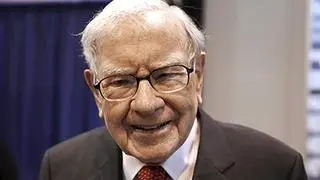The initial public offering (IPO) of Hyderabad-based precision parts manufacturer Azad Engineering will remain open during 20-22 December, 2023. The total offer is worth around ₹740 crore out of which ₹240 crore is fresh issue and ₹500 crore is an offer for sale. The proceeds from the fresh issue shall be utilised for pre/repayment of debt (₹138 crore), funding capital expenditure (₹60 crore) and general corporate purposes.
The price band of the issue has been set in the range of ₹499 to ₹524 per share. At the upper end, the company’s market cap comes to around ₹3,097 crore. Here are five things to know about the IPO.
1. Business
Azad Engineering is engaged in the manufacturing of highly engineered precision forged and machined components that are mission and life-critical. The company primarily operates in energy (87 per cent of operating revenue), aerospace and defence (9 per cent), and other segments including oil and gas and scrap (4 per cent).
Within the energy space, the company manufactures airfoils/blades, special machined parts, and combustion component assemblies for land-based turbines with applications in industrial and energy plants using different fuel types such as nuclear, hydrogen, natural gas, and thermal. In this space, the company has recognized Triveni Turbines as its listed peer.
Aerospace and defence products include airfoils/ blades and components for engines, auxiliary power units, hydraulics, flight controls, fuel, and inerting sections of commercial and defence aircrafts and spacecrafts, among other defence systems. The company has recognised Dynamatic Technologies, MTAR Technologies, and Paras Defence and Space Technologies as listed peers in the space.
For the oil and gas industry, the company manufactures components of drilling rigs such as drill bits and other critical components used in drilling equipment. These components are integral to the exploration and production phases.
The company’s customers include global original equipment manufacturers such as GE, Honeywell International, Mitsubishi Heavy Industries, Siemens Energy, Eaton Aerospace, and MAN Energy Solutions. It derives nearly 80 per cent of its sales from outside India and the remaining 20 per cent from within India.
Primary raw materials include exotic alloys such as titanium, nimonic and inconel, castings, specialised steel, and aluminum. The company doesn’t have long-term contracts with its raw material suppliers and raw material is purchased as per the order from the customers.
2. Financials and Valuation
The company has been able to grow its operating revenue by 43 per cent CAGR during FY21-23 to around ₹252 crore due to an increase in the business volume from the sale of products for energy, aerospace, and defence industries, while it reported revenue of around ₹159 crore during H1FY24. It has been able to grow its EBITDA at CAGR in line with revenue growth thereby maintaining its margin at around 30 per cent during the last three fiscals. However, net profit has been quite volatile, primarily due to finance costs. Net profit reduced from around ₹11 crore in FY21 to ₹8.5 crore in FY23 while it grew to ₹28.8 crore in H1FY24. Finance cost for the company increased from around ₹5.3 crore in FY21 to ₹52.4 crore in FY23 and remained at around ₹21.8 crore in H1FY24. As per the RHP, the increase was primarily due to interest on compulsorily convertible debentures (CCDs) and optionally convertible debentures (OCDs) and premium on redemption of certain OCDs. As per the management, owing to IPO proceeds and the conversion of certain CCDs, the interest cost is expected to fall going forward. Its D/E is around 1.47 times compared to nearly zero debt in listed peers’ balance sheet.
The valuation stands at a trailing P/E (H1FY24 net profit) of around 58 times (366 times considering FY23 PAT). Its EV/EBITDA (H1FY24 EBITDA annualised) comes in at around 32 times (it is 46 times considering FY23 EBITDA).
3. Strengths
The company operates in an industry with significant barriers for new entrants on account of lengthy and stringent qualification process. Some of these components are life-critical and mission-critical, requiring zero parts per million defect. Typically, the approval process takes more than 15 months, in addition to the time required for setting up manufacturing infrastructure and facilities.
Furthermore, the company has a long-standing customer base that includes leading product OEM companies, with General Electric and Mitsubishi Heavy Industries as key strategic partners. The company has an average relationship of over 10 years with these two partners. Additionally, the company has a diversified customer base spread across countries such as the US, the UK, Europe, Japan, and the Middle East.
4. Risks
The company sells products to customers in India and overseas, including the United States of America, Europe, Japan, the Middle East, and the UK. As a result, it is subject to several and complex legal and regulatory requirements specific to various jurisdictions. Furthermore, the company faces a significant dependency on the sale of its products to key customers, with revenue concentration from the top five customers amounting to 60 per cent in H1FY24.The potential loss of any of these crucial clients or a decline in revenue from sales could profoundly impact the company.
5. What investors should do?
The company has been able to grow its revenue and EBITDA at a high CAGR of more than 40 per cent in the last three years. The entry barriers in the industry bode well for the company, while high finance costs have dragged PAT margins in the past. Seen in isolation, a P/E of 57 times (annualised) appears high, but it is in line with the valuation of listed peers. Long-term investors can wait and watch to assess sustainable revenue growth rate, stability in profitability, and the ability to scale up before they take the plunge.







Comments
Comments have to be in English, and in full sentences. They cannot be abusive or personal. Please abide by our community guidelines for posting your comments.
We have migrated to a new commenting platform. If you are already a registered user of TheHindu Businessline and logged in, you may continue to engage with our articles. If you do not have an account please register and login to post comments. Users can access their older comments by logging into their accounts on Vuukle.